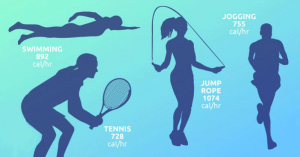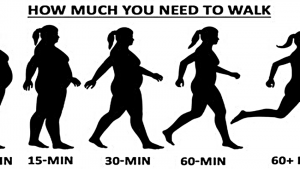Are you struggling to lose weight and maintain a healthy diet? You may have a toxic fatty acid that blocks weight loss.
Here's how a simple “Ice Hack” speed up my fat loss and helped me restore my health, watch now.

Nowadays, many people struggle with weight loss as it can be extremely confusing for some people. In fact, weight loss is often described as overwhelming and perplexing, leading to a sense of confusion and frustration.
Fortunately, here are a few tips you need to know to achieve your weight loss goal:
1. Understanding Calories
To understand weight loss, we first need to understand calories. Calories are the energy we get from the food we eat, and our bodies use this energy to function. When we consume more calories than our bodies need, the excess is stored as fat. Therefore, to lose weight, we need to burn more calories than we consume.
2. The Role of Diet
Diet is a crucial component of weight loss. In order to burn more calories than we consume, we need to be mindful of our diet. This means consuming a healthy, balanced diet that is rich in nutrients and low in calories. A diet that is too high in calories, fats, and sugars can lead to weight gain and other health issues.
3. Exercise and Weight Loss
Exercise is another essential component of weight loss. When we exercise, we burn calories, which can help us achieve a calorie deficit. In addition, exercise helps to build muscle, which can increase our metabolism and help us burn more calories throughout the day.
4. The Importance of Sleep
Many people overlook the importance of sleep when it comes to weight loss. When we don’t get enough sleep, our bodies produce more of the hormone ghrelin, which stimulates hunger, and less of the hormone leptin, which helps us feel full. Therefore, getting enough sleep is essential for regulating our hunger and achieving our weight loss goals.
5. The Role of Stress
Stress can also play a significant role in weight gain and difficulty with weight loss. When we are stressed, our bodies produce more of the hormone cortisol, which can increase appetite and lead to overeating. In addition, stress can make it harder to stick to healthy habits like exercise and a balanced diet.
The Science Behind Weight Loss
In conclusion, weight loss is a complex process that involves many factors. To achieve your weight loss goals, it’s important to understand the science behind weight loss and to be mindful of your diet, exercise, sleep, and stress levels. By making healthy lifestyle choices and being consistent, you can achieve your goals and improve your overall health and well-being.











